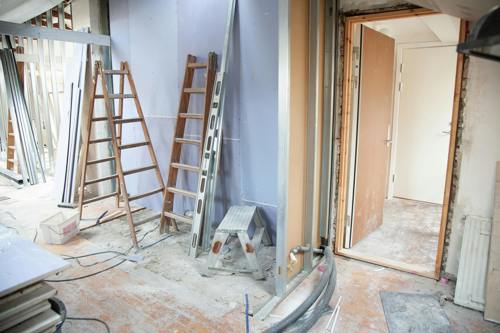
A second charge bridging loan can be a good solution for situations where you need funding quickly. But what exactly are they, and when might you consider using one?
In this blog, we'll explain everything you need to know about this versatile funding option, helping you determine if it's the right choice for your needs.
What is a second charge bridging loan?
A second charge bridging loan is a short-term funding solution, which will be secured on a property that already has an existing mortgage. It's called a "second charge" because it's secondary to the first mortgage.
Since this loan is in addition to your existing mortgage, it won't affect your first mortgage terms or rates.
This type of loan is handy in those situations where you need quick access to funds because it can be arranged fast. For example, if you’re purchasing property at auction.
Having a clear exit strategy is key for any bridging loan. This is your plan to repay the loan, and without one, getting approved will be hard. So, if you're thinking of applying, make sure you've thought this out beforehand.
What is the difference between first charge and second charge?
The main difference between a first charge and a second charge is their repayment order. Essentially, their names outline the order in which they're repaid.
If you can't repay and the property is repossessed, the first charge loan is paid off first. This is because it was arranged first and is usually a larger loan size. The second charge comes after, making it the second priority for repayment.
What can second charge bridge loans be used for?
Second charge bridge loans are commonly used when fast access to funds is crucial. They can be used for various purposes, such as:
- Quick property purchases, like buying at auction.
- Property development, including funding both light and heavy refurbishments.
- Business funding needs, like paying a tax bill or providing a deposit for a property purchase.
Am I eligible for a second charge bridging loan?
Eligibility varies by lender, so you might qualify with one but not another. Generally, to qualify, you'll need:
- Permission from your first charge lender: Some lenders may not allow you to have another loan secured on the property.
- Equity in the property: You should have some equity in the property.
- A clear exit strategy: You need a solid plan for repaying the loan.
Additionally, if the lender has any other criteria you need to fit, this will also be important.
What are the interest rates on a second charge bridge loan?
Since it's a short-term loan and can be risky for the lender, the rates are usually higher than longer-term options.
However, the specific rate will depend on the lender since each one offers different products. Therefore, it's best to ask them directly or your broker for an idea of what rates are available.
Can a lender refuse a second charge bridging loan?
Yes, a lender can refuse it. Your first mortgage lender might not allow it if they think they won't recover their costs if you can’t repay and the property is repossessed.
However, many lenders do allow it. Make sure to check with your first charge lender before applying to avoid wasting any of your time and effort.
Are second charge bridging loans regulated?
Yes, they can be regulated. Loans secured against a property you live in or plan to live in are regulated by the FCA. This means that lenders and brokers must follow specific rules to make sure they treat borrowers fairly and provide suitable solutions.
However, if the loan is secured against an investment property like a buy-to-let or commercial property, it won't be regulated by the FCA, so the same level of protection doesn't apply. This is explained more in our blog regulated vs unregulated bridging loans.
Where can I find a second charge bridging lender?
Finding second charge bridging lenders can be straightforward. You can start by searching online for reputable companies or asking friends and family for recommendations. If you contact a lender directly, be aware that you'll be limited to that lender’s products, and failing to meet their eligibility criteria could result in rejection.
If you are having difficulty, consider working with a broker (like us). Brokers have access to a broader range of products as they work with multiple lenders. They may be able to help you identify a lender that matches your needs, which may increase your chances of approval. However, keep in mind that using a broker might involve additional fees than if you went directly to a lender, which you should consider when evaluating your options.
Summary
In conclusion, second charge bridging loans can be a good way of swiftly accessing funds. Although their interest rates may be higher due to their short-term and risky nature, they can be invaluable for urgent needs such as buying property at auctions or development projects. Considering their cost, it's important to assess whether they're the right fit for your situation before proceeding, and this blog aims to assist you in making that decision.
Loans are secured against property. Think carefully before securing other debts against your home. Your home may be repossessed if you do not keep up repayments on a mortgage or any other debt secured on it.




